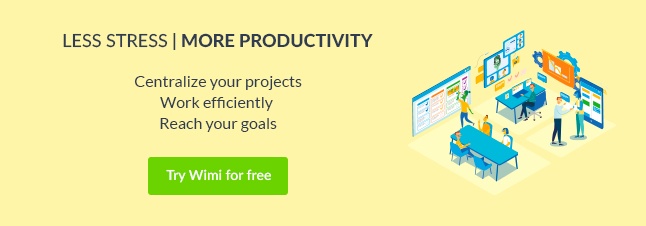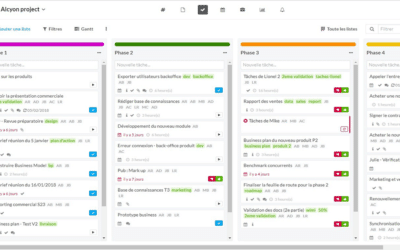Do you feel stressed, worn out and completely demotivated at work? Are you anxious? Do you have insomnia and difficulty getting out of bed in the morning? Do you feel completely inefficient at work? If the answer to several of these questions is yes, you probably suffer from burnout syndrome.
You have surely already heard of burnout, which is considered the plague of the 21st century. According to the study “Parlons travail” conducted by the CFDT in September 2016, 36% of people surveyed claimed to have already had a burnout at some point in their career. This is not surprising in a world where we are asked to work more and more, and where pressure and stress is part of daily life.
Discover the symptoms and causes of burnout, and how to prevent it.
What is burnout?
According to Santé Publique France, “burnout or professional exhaustion is characterised as a state of physical, emotional and mental exhaustion resulting from emotionally demanding work situations”. In summary, your work is draining your energy, leaving you physically and psychologically drained. A difficult situation could gravely harm your health, trigger depression and even drive you to suicide in the most extreme cases. This phenomenon should not be taken lightly.
Burnout is not officially considered an illness. However, The World Health Organisation (WHO) recognises burnout as a phenomenon linked to work. The 11th revision of the international classification of illnesses (ICD-11), states that ‘the syndrome resulting from chronic stress at work has not been correctly managed’. It is possible that it could be classified an illness in the immediate future. Social security coverage would then be possible. The term burnout was used for the first time in 1974, in an article titled Staff Burnout, written by the American psychiatrist Herbert Freudenberger. Today, burnout affects millions of employees, women and men, regardless of their profession or industry sector.
What are the causes?
Burnout generally affects conscientious people, who are very invested in their work, have a lot responsibility, are relied upon and are constantly under pressure and stress at work. As a result, the body can no longer handle the pressure and chronic stress which results in a breakdown.
Here are the main reasons for burn out:
- High expectations,
- A large workload
- Unclear objectives and/or contradictory demands
- Uninteresting, repetitive or monotonous work
- Lack of independence
- Bad management
- Rigid working hours and long days at work
- A bad office atmosphere
- A lack of recognition
- Difficult working conditions
- A lack of balance between private and professional life
- Constant pressure (to respect deadlines, attract more clients)
- Over-commitment to work
As you can see there are several root causes for burnout: the work environment, colleagues, type of management, the role itself and the person concerned. Knowing how to identify theses causes is important for progression and development.
What are the symptoms?
As aforementioned, physical and mental burn out is a main characteristic of burn out. But there are also other symptoms you should be able to identify, and which should raise red flags. They have been divided into three categories:
- Physiological – lack of energy and exhaustion, trouble sleeping, insomnia, various physical ailments (stomach ache, tendonitis), heart palpitations…
- Psychological and emotional – depression, self-deprecation, pessimism, hypersensitivity, lack of self-confidence, feeling of powerlessness, doubting their competency, trouble concentrating, hopelessness and anxiety.
- Behavioural – lower productivity levels, lack of motivation, aggression, irritability, impulsiveness, impatience, socialisation and introversion, substance abuse (alcohol or drugs)
All these symptoms are signs that your body is sending you to act and remove yourself from the situation of being overworked. Listen to your body and get yourself to a doctor.
How to prevent a burnout?
Do you recognise the causes and the symptoms described above? Act before it’s too late. Burnout is a severe condition that you should take seriously.
To reduce stress at work and to avoid burnout, you should change your habits and follow these preventative measures.
- Listen to your body and identify the symptoms of a burn-out
- Identify the causes of your stress
- Discuss your situation with your manager and the measures you can take to improve your situation. A good manager will listen to you and help you better manage your work load.
- Create realistic and motivating objectives together as well as clarifying your role and responsibilities. Ensure that the definition of your role is respected and do not hesitate to point out when a task is not your responsibility.
- Define your priorities by using the Eisenhower matrix or the MoSCoW method for example.
- Learn to say no when you are already overloaded with work.
- Learn to delegate secondary tasks so that you can concentrate on tasks that are truly important.
- Take breaks, they are essential to recharge and stay productive. Take a real break during lunch in which you do not work.
- Disconnect yourself from work devices when you leave the office: turn off your work phone and leave your work laptop at work. Your messages and your emails can wait until tomorrow or after the weekend.
- Take time for yourself, your family and your hobbies. Regularly do some sort of physical activity as this is excellent stress relief.
Changing your habits is not an easy task, but it is a necessary step and essential to avoid burn out and to take care of yourself.
Learn to listen to your body, know to take time for yourself, reduce all sources of stress, do sport so that you stay in shape, allowing you to have a better work/life balance.
You aren’t taken seriously? It’s time to leave your company and find a new employer who cares about the health of their employees. In any case, speak to those close to you and your doctor, don’t wait until it’s too late to act.










